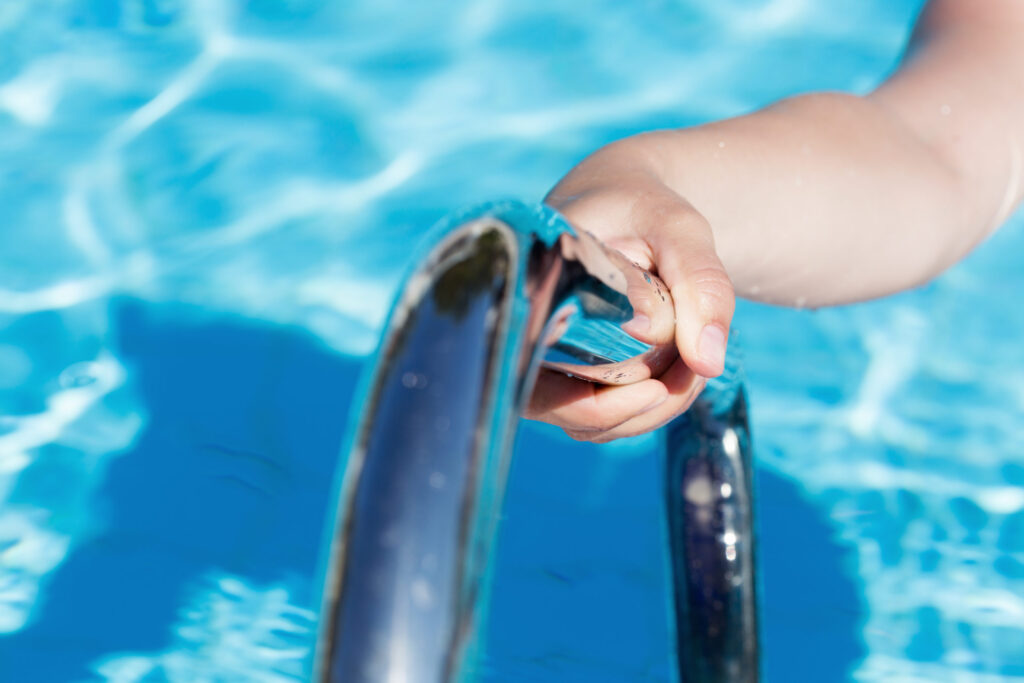
When was the last time you actually paused and read the pool rules? If you’re like the majority of Americans, it has probably been a while. However, the ever-present aluminum signs posted in nation-wide aquatic facilities remind us that the fun-filled, Summer activity can be dangerous if proper caution is not taken. According to the Pool Safety Foundation, drownings continue to be the second leading cause of preventable death through the age 15. In addition, the Centers for Disease Control and Prevention reported that for every child who dies from drowning, another eight receive emergency department care for non-fatal drownings. If you are a parent, it’s important to know what types of injuries can occur at the pool, what to do if your child is injured, and how to best prevent these injuries from happening in the first place. Continue reading for all things pool safety and liability in the Philadelphia area.
Common Swimming Pool Injuries
In the world of personal injury, the severity of injuries have a large range; from scrapes and bruises, to broken bones, and unfortunately sometimes death. It’s important to note that although the severity of injuries vary by case, there is no injury “too small” to receive compensation. As long as the requirements to prove negligence are present, an injured party has the right to be compensated for medical costs and other related damages. Below are common swimming pool injuries.
- Slips and Falls – The most common poolside injury is from an understood risk that’s taken when you decide to go to the pool. Still, they can cause mild to severe injuries.
- Electrocution – Underwater light fixtures, speakers and other appliances can lead to electrocution injuries if they are not properly maintained, and if patrons are not warned to stay clear of them. This type of injury is not super common, but they affect a handful of people every year.
- Paralysis & Traumatic Brain Injury – Usually caused by diving board related accidents or severe slips and falls, injuries with life altering effects are known to happen at swimming pools.
- Near Drowning & Drowning – Although mostly common among kids 15 and under, those susceptible to drowning injuries and deaths also include adults who consume alcohol around the pool.
Swimming Pool Premises Liability
Whether you’re at a friend’s house, the neighborhood pool, a fitness center, or water park, property owners have a duty to maintain the pool and surrounding area, and warn visitors of potential hazards. This includes the upkeep of items such as ladders, slides, and diving boards. Additionally, they should have the proper safety equipment available in the event of an accident. This includes life preservers, AEDs, and first aid supplies. Proper signage and warnings should be displayed as well for hazards that are not assumed or obvious. For example, specific markings on the premise where it is too shallow for diving.
There are a couple instances where a property owner will not be held responsible for any injuries; if the victim was trespassing or if another patron’s actions directly caused the injuries of the victim. Children trespassers are an exception because they do not understand the danger of drowning, so in that instance a property owner can be held liable for failing to prevent access. In other words, the proper safety measures were not taken to keep young children out of the pool area. If an injury occurred on a property owner’s premise from an altercation or rough-housing, the property owner is not liable.
Swimming Pool Safety Tips
Swimming pool injuries and deaths can be prevented. That is why proper signage, maintenance, and safety protocols are put in place and required by property owners. However, it is just as important for patrons or visitors to do their part in keeping themselves and those around them safe. If you do not adhere to the displayed rules, you could in fact be the negligent party – not the property owner. To best ensure the safety of your family, follow all the pool rules and consider these additional safety tips for your next Summer outing.
- Never swim alone! Swim with a friend or family member, or make sure there is someone else nearby in the case of an emergency.
- Teach your kids to stay away from drains and other openings that cause suction. Drains can be dangerous, especially for children and those that wear protective layers when swimming. The suction can be strong enough to overpower a small child, and articles of clothing such as swim shirts can easily get caught in the drains.
- Learn CPR. If you are on a property without a lifeguard on duty, knowing CPR yourself can save your child’s life or even a stranger’s life. Bystanders are going to be the quickest responders in an emergency situation with no lifeguard on duty.
Contact Us Today
In the event of a swimming pool injury, fault is dependent on many factors. Premises liability rules are most likely going to apply, but a property owner is not automatically liable for accidents that occur either. Only a proper investigation will determine who the at-fault party is. If your child has been injured or worse – lost their life – due to a swimming pool accident, reach out to one of our experienced personal injury attorneys today.
During this time, The Cochran Firm Philadelphia is continuing to take our own precautionary measures amidst COVID-19, but do not fear – we are still here for you. We will review your case and proceed if we feel we can obtain a favorable outcome, while keeping the health and wellbeing of everyone a priority. We will ensure your case remains on track and keep you in the loop throughout the entire process.
The attorneys at our Philadelphia office have secured numerous multimillion-dollar awards for victims of serious injury and many have even been recognized as Super Lawyers for their personal injury successes.
When you are the victim of serious injury or illness, you deserve someone on your side who is both intimately familiar with state and federal laws, and fully devoted to helping you get maximum compensation. Call us today to schedule your FREE case evaluation at 1-800-THE-FIRM.
